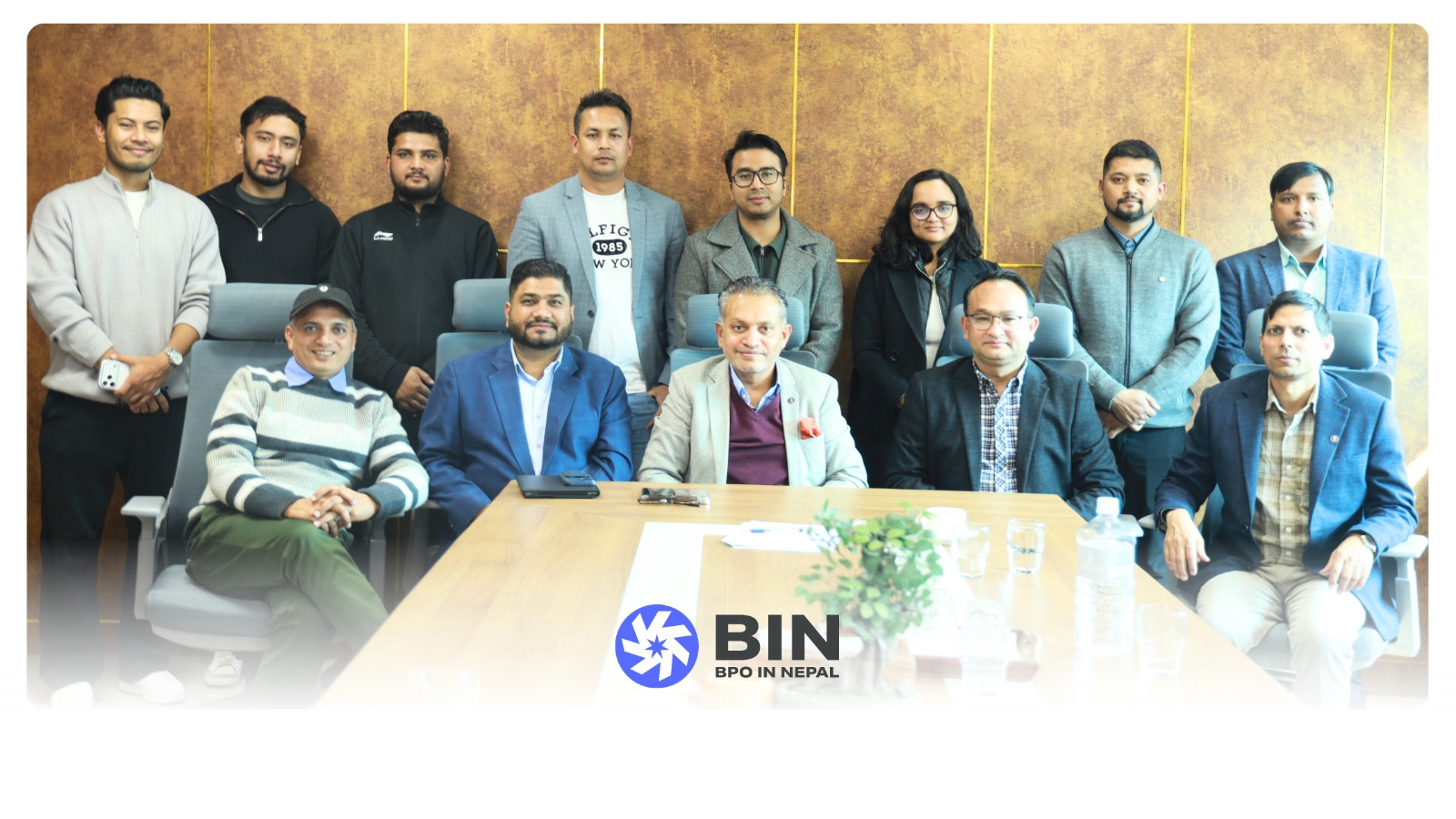Why Law Firms Are Turning to Nepal for Cost-Effective LPO Services

By Samunnati Shrestha, Creative Lead at BIN
Category Legal Process Outsourcing (LPO)
Published June 26 2025
Legal process outsourcing has matured into a strategic resource for law firms worldwide. In recent years, Nepal has emerged as a compelling destination for Legal Process Outsourcing (LPO), with a growing number of international firms recognizing its value. Nepal offers more than cost savings. It blends cultural adaptability, improving legal infrastructure, strong English proficiency, and emerging technology maturity. Law firms seeking reliable, scalable, and high-quality LPO services are increasingly turning to Nepal. In this article, we explore the key factors driving this shift, how Nepal stands apart, what kinds of processes can be effectively outsourced, and why BIN has become a trusted partner for firms around the globe.
Cost and Value
Nepal’s primary advantage for international law firms is financial. Legal professionals based in countries like the United States, the United Kingdom, Canada, and Australia carry significant salary expectations. When the same or better quality work can be performed by skilled Nepali lawyers and legal professionals at a much lower cost, the opportunity becomes clear.
On average, Nepal-based talent delivers savings that range between 50 to 70 percent compared to Western counterparts. This makes routine legal tasks sustainable to outsource and grants firms the flexibility to reinvest savings into higher-value work or new service expansions. The financial advantage is not achieved through diminished quality but through economic pragmatism.
Skilled and Educated Workforce
Nepal boasts a steadily growing number of law graduates and legal professionals who are trained in international regulatory frameworks. Many Nepali lawyers graduate from top-tier universities in Kathmandu and regional hubs, and some go on to earn postgraduate degrees abroad. Their expertise spans legal research, contract drafting, regulatory compliance, corporate governance, and intellectual property. Fluency in English is generally high among graduates. Combined with a strong work ethic, attention to detail, and an aptitude for structured legal analysis, these professionals are well suited for handling outsourced legal tasks across multiple jurisdictions. They are accustomed to international best practices and ethical standards.
Time Zone Advantage and 24-Hour Turnaround
Nepal operates 4 hours and 45 minutes ahead of GMT and approximately 10 to 12 hours ahead of most U.S. time zones. This shift provides global law firms with the ability to employ a near 24-hour work cycle. A project submitted at the end of the North American workday can be completed and returned the next morning, minimizing turnaround times and speeding delivery.
This time zone advantage supports tight deadlines, ensures consistent progress, and increases client satisfaction. It also enables law firms to optimize their internal resources and have a fresh perspective on pending work before their morning starts.
Cultural Alignment
Culture matters significantly when it comes to legal work. Nepali professionals share many cultural traits with Western clients such as respect, professionalism, and politeness. They adapt easily to international work styles and business etiquette. Many LPO team members in Nepal are accustomed to working with diverse global firms, making them comfortable with U.S. or U.K. legal terminology, tone, and style. This cultural synergy minimizes misinterpretations and boosts collaboration.
Additionally, Nepali professionals display strong loyalty and lower attrition rates than in some outsourcing destinations. This reliability fosters long-term partnerships.
Infrastructure and Technology
Over the past decade, Nepal has made targeted investments in digital infrastructure. Major urban centers like Kathmandu, Pokhara, and Lalitpur boast reliable high-speed internet, dedicated data centers, and secure cloud storage capabilities. These enable remote and hybrid delivery models with enterprise-grade encryption and stable remote access.
Legal support teams based in co-working spaces or regulated office environments benefit from backup power, modern workstations, and reliable connectivity. Technology adoption trends show growing popularity of legal research tools, document automation platforms, secure collaboration suites, and AI-assisted contract review software.
Law firms that leverage Nepali teams can integrate them directly into their tech stacks.
Regulatory Compliance and Data Security
LPO partners in Nepal are increasingly adopting international compliance standards. Leading firms, including BIN, implement internal policies aligned with GDPR, ISO 27001, and confidentiality best practices. Staff undergo mandatory training on ethics, data handling, and client confidentiality.
Secure file transfer protocols, encryption, role-based access, audit logs, and occasional third-party security audits are standard. These safeguards protect sensitive client data and intellectual property from exposure. By addressing compliance concerns head-on, Nepal-based LPO teams build trust and credibility similar to onshore options.
Range of Legal Services
Nepal’s growing legal outsourcing sector can now support a wide range of services including legal research, contract drafting and review, due diligence, eDiscovery, regulatory support, immigration work, trademark search, IP filings, and patent support.
Additional functions like litigation support, compliance monitoring, document management, and intellectual property support are available. Some firms have even established specialist teams focusing on M&A support, antitrust research, and complex commercial contracts.
This breadth allows international law firms to treat Nepal as an integrated extension of their operations rather than a source for only niche services.
Quality Control and Accountability
Quality assurance is non-negotiable in legal outsourcing. Nepali LPO providers have responded with multilayered review processes, clear SOPs, peer review structures, error-tracking systems, and real-time communication streams.
BIN, for example, implements team-level reviews, version control systems, regular client check-ins, and transparent tracking of errors and timelines. Service-level agreements clearly establish accuracy benchmarks, turnaround expectations, and escalation protocols.
This ensures that international clients receive high-quality, timely, and predictable legal support that mirrors onshore performance and accountability.
Ability to Scale on Demand
Whether it’s handling a surge in due diligence projects, supporting rapid growth in litigation, or preparing for regulatory audits, law firms require flexibility. Nepal-based LPO teams can scale rapidly. By adding extra staff in blocks of 5 to 10 professionals, workflows can ramp effortlessly. Seasonal spikes, industry-wide adjustments, and new contracting opportunities can be managed with speed and efficiency. Firms benefit from modular pricing models adding or subtracting monthly headcount as needed. This near elastic workforce eliminates delays from recruitment cycles and supports sudden pivots in client needs.
Competitive Rates with High Service Level
Many Western LPO markets are crowded and increasingly costly. Nepali partnerships offer competitive services at rates significantly lower than rival offshore jurisdictions. Clients benefit not just from lower labor costs but also from deep bench capabilities in legal writing, research, drafting, and compliance.
Through careful vetting and performance-based pricing, law firms receive predictable per-project costs. Nepal-based teams deliver service bundles that are often superior in value to other jurisdictions with higher rates or limited talent pools.
Promoting Access to Justice and Economic Development
Nepali LPO success also has a transformative impact at home. The global demand for quality legal services has created new employment paths for graduates and contributed to expanding Nepal’s knowledge economy. Increased access to global clients enables creativity, entrepreneurship, and specialization in legal services.
For law firms, supporting these ecosystems delivers social value without compromising outcomes. Nepal’s LPO sector has become an example of ethically aligned outsourcing driving economic benefits for both clients and communities.
BIN’s Model for Delivering Reliable, High‑Quality LPO
BIN stands out in Nepal’s LPO landscape thanks to its strategic approach and client-centric design. We source top legal talent, provide continuous training tailored to foreign jurisdictions, and ensure compliance with international regulations.
Our technology infrastructure supports secure remote access and fully encrypted communication. Real-time tracking dashboards, SLAs based on accuracy and turnaround, and regular reporting build trust and clarity.
BIN offers flexible engagement models from fully embedded legal research teams to project-based support. Our clients benefit from rapid scale-up capacity, multilingual support, and intelligent work allocation.
Overcoming Misconceptions
Despite strong growth, Nepal still faces skepticism from some firms. Concerns may include fears of regulatory misalignment, quality control, or communication barriers. These worries are largely outdated. The current generation of LPO providers offers sophisticated project management tools, audit logs, and governance frameworks.
English proficiency among legal professionals in Nepal is high, and firms often embed teams within client workstreams. Project starters involve collaborative planning, pilot batches, and joint adjustments. Early transparency, governance frameworks, and cultural advocacy help build long-term trust.
The Future of Nepal-Based LPO
Growth projections for legal outsourcing in Nepal are strong. As infrastructure further improves, tech adoption deepens, and privacy standards are reinforced, more international law firms will consider Nepal a core LPO hub.
Artificial intelligence, contract analytics, legal chatbots, and augmented research systems are being introduced into existing workflows, taking quality and speed to new heights. Firms evolving alongside these trends will gain strategic advantages through innovation, efficiency, and cost management.
Conclusion
Nepal offers a powerful combination of cost advantage, skilled talent, cultural compatibility, robust infrastructure, compliance readiness, and stable delivery. These factors make it increasingly attractive for law firms seeking a strategic LPO destination. BIN exemplifies how Nepal-based partners can seamlessly extend a firm’s legal operation offering reliability, scalability, and quality without sacrificing control or ethics.
As the legal market continues to evolve, firms that embrace Nepal-based LPO will be better positioned for sustained growth, client satisfaction, and operational excellence. In this shift, it’s not simply about saving costs; it’s about building a global legal delivery model that is smarter, more agile, and strategically enabled for the future. Nepal has arrived, and its moment within the global LPO landscape is here.





